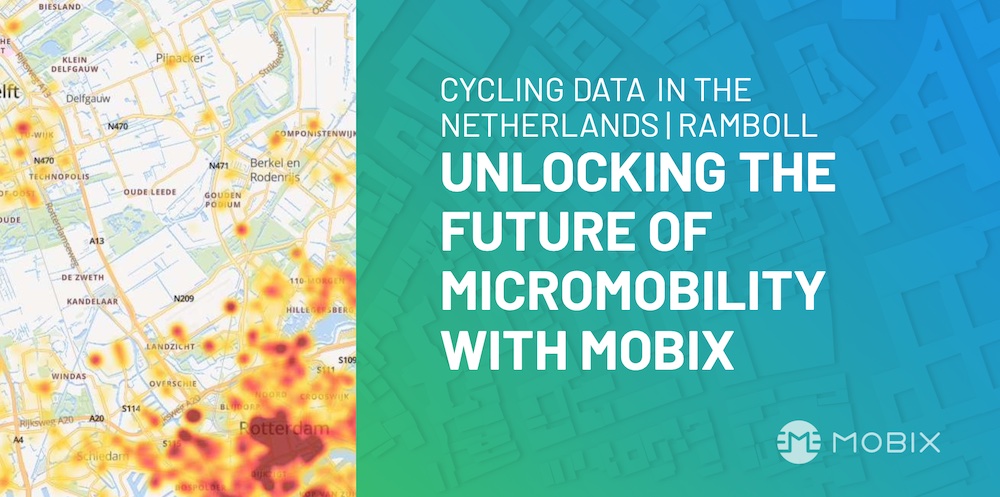Insights from Ramboll Webinar on February 7, 2023
Are you interested in the future of micromobility and how data collection can help shape it? The collection and analysis of data are vital for achieving strategic goals. But how can we determine which data is necessary and which collection methods are effective?
These are just some of the questions that Rick Lindemann addressed in his recent presentation on “Cycling Data in the Netherlands” at the Ramboll Webinar on February 7, 2023. In this blog post, we will explore the capabilities of MOBIX that can be used to reward micromobility users, as an incentive for their participation, to share their fully-owned data to benefit local institutions and academia working in the micromobility ecosystem.
One of the key benefits of MOBIX is that it ensures privacy. It uses blockchain technology to keep the user’s data secure and anonymous, preventing any misuse of data. Additionally, MOBIX can be used to incentivize users to share their data willingly by offering rewards for participation, such as cryptocurrency or discounts on micromobility services. The data collected via MOBIX could be floating (shared/owned) micromobility data, infrastructure data, and parking data. For example, let’s say a city wants to improve its cycling infrastructure. MOBIX can provide the necessary datasets to help plan, design and execute the project effectively. MOBIX enables collecting data from micromobility users on-the-go, making it a more comprehensive data collection tool.
It’s also important to collect data from a wider range of users living in different countries so that the effectiveness of different interventions to increase micromobility usage can be measured. For instance, by using MOBIX, the number of micromobility users, the frequency, and the extent of micromobility usage can be compared. This comparison can be done in the light of micromobility policies, available infrastructures, and changing weather conditions in various cities. By doing so, cities and other stakeholders can make informed decisions on investments that can encourage the use of micromobility vehicles.
In the future, MOBIX can be used to invite and incentivize micromobility users to share self-report data regarding their needs and requests: Micromobility User Experience (e.g. BUX). Such data can help stakeholders understand user preferences and make informed decisions regarding investments in infrastructure or new micromobility services.
In conclusion, MOBIX can offer an innovative way of collecting and utilizing data for the benefit of micromobility users and various stakeholders in the ecosystem. It can provide a more comprehensive, efficient and secure way of data collection, enabling users to share their data with privacy, and offering rewards for participation. As more cities around the world embrace micromobility, MOBIX will play a crucial role in shaping the future of transportation, enabling the creation of smarter cities, reducing traffic congestion, and improving the quality of life of citizens.
Let’s MOBIX!

